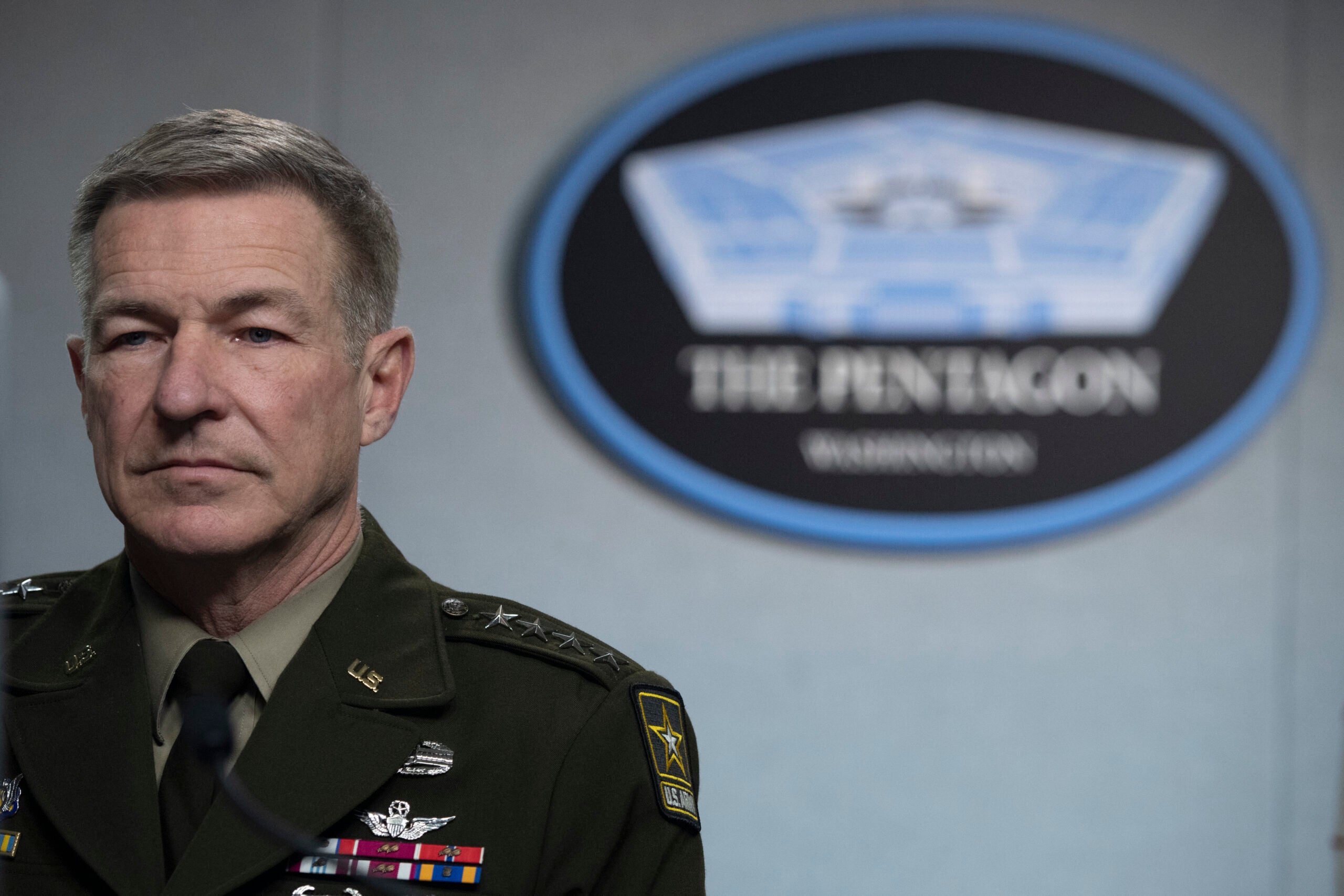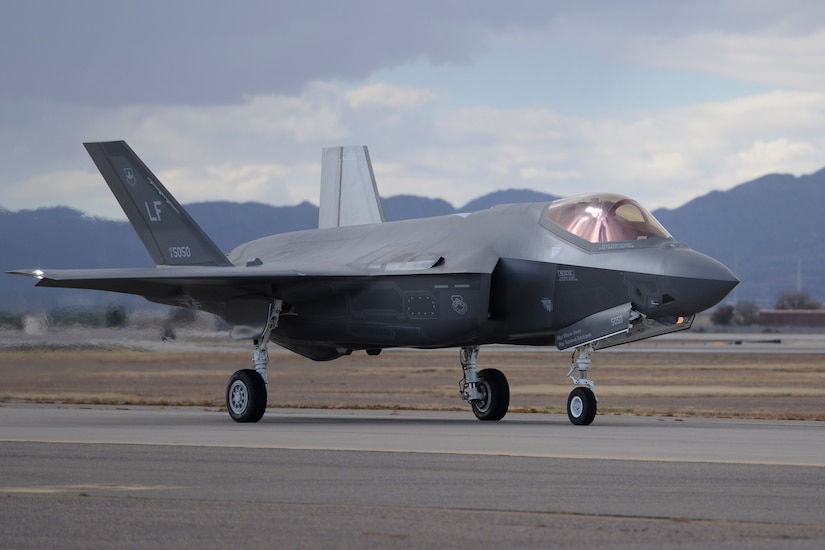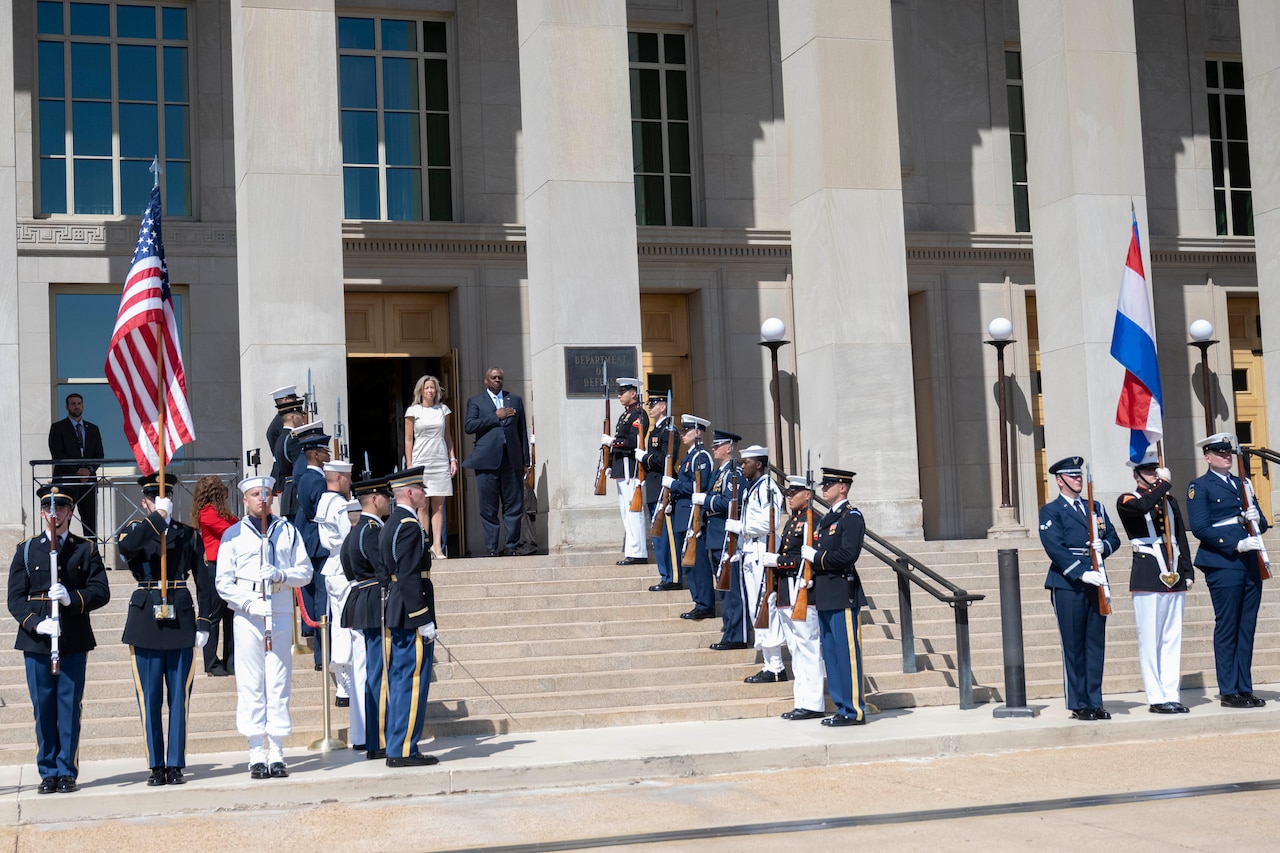
[ad_1]
On Capitol Hill today, four nominees to positions within the Defense Department met with senators to discuss their vision for how they might handle their roles if confirmed.
Radha Plumb: deputy undersecretary of defense for acquisition and sustainment
Milancy D. Harris: deputy undersecretary of defense for intelligence and security
Laura Taylor-Kale: assistant secretary of defense for industrial base policy
Brendan Owens: assistant secretary of defense for energy, installations and environment
“We have the finest military in the world and the creativity and competence of a thriving commercial sector that is also the envy of the world,” Plumb said. “If confirmed, my task will be to match warfighter requirements from our military with the technologies in that vibrant industrial base to ensure our military has the capabilities it needs to prevail in critical missions anytime, anywhere.”
If confirmed, Plumb said she believes the department must establish clear transition pathways for critical new technologies such as hypersonics, artificial intelligence and directed energy. She also said the department must find ways to leverage new acquisition pathways to acquire software and software-intensive systems to meet the needs of warfighters and also invest in the defense industrial base to reduce foreign dependency.
Plumb currently serves as the chief of staff to the deputy secretary of defense. She has previously held positions at Google, Facebook, the RAND Corporation, the Department of Energy and the White House National Security Council.
“Defense, intelligence and security efforts provide critical support to the secretary’s national defense strategy and are essential to ensuring the United States retains its strategic advantage today and in the future,” Harris said. “I approach my nomination with a clear focus on ensuring we are best positioned to collaborate with allies and partners, collect information, conduct analysis on intelligence priorities and protect our intelligence and innovations.”
Nominated as the deputy undersecretary of defense for intelligence and security, Harris told senators the department should ensure it recruits and retains a workforce that reflects the diversity of the nation and must also increase reciprocity across the intelligence community and create educational and broadening opportunities.
Harris currently serves as the deputy assistant secretary of defense for irregular warfare and counterterrorism. She’s also held positions within the Defense Intelligence Agency, the National Counterterrorism Center and the Office of the Director of National Intelligence.
Nominated as assistant secretary of defense for industrial base policy, Taylor-Kale said that her tenure in the role, if confirmed, would be shaped by her belief that U.S. economic security is fundamentally national security.
“My experience in international economics and development finance has reinforced my view that our open democratic system and market-driven, rules-based economy is our strength,” she said. “And that our resilience and innovative defense industrial base powers our ability to prevail in an age of strategic competition against China and other competitors.”
If confirmed, Taylor-Kale said she’d focus on key issues that include, among other things, engaging industry and strategic allies as partners to mitigate the department’s supply chain risks, increasing competition and supporting small business and non-traditional suppliers, protecting the defense industrial base from foreign adversary capital, and increasing domestic production of critical minerals and strategic materials.
Currently, Taylor-Kale serves as a fellow for innovation and economic competitiveness at the Council on Foreign Relations. She has held previous positions within the International Trade Administration, the U.S. Development Finance Corporation, the State Department and the World Bank.
Nominated to, among other things, manage the Defense Department’s global portfolio of real estate, Owens said if confirmed, he’d be honored to serve the men and women who defend the nation.
“I will do everything I can to ensure their ability to decisively execute their mission, while those of us serving in support of that mission safeguard their well-being,” he said. “For most of the force, this starts by ensuring they have safe, healthy, efficient and resilient places to live and work. These places should be enhancing the health, well-being and readiness of our servicemembers and their families.”
If confirmed, Owens said he will be a champion for service members to ensure their environment, homes, workplaces and infrastructure serve to enhance their ability to complete their mission and thrive. He also noted that nearly every military installation in what would be his portfolio is dependent on local communities for their energy needs and that this presents risk to the department. He told lawmakers he believes that due to the large size of the Defense Department, ongoing efforts by the department to enhance energy resilience on military installations through things like microgrids, building-to-grid integration, energy generation and storage, could benefit not just local communities but also the nation as a whole.
Owens, an engineer, currently serves as a principal of Black Vest Strategy, a consulting firm he founded. He also served for 19 years within the U.S. Green Building Council and before that as an energy manager at Fort Belvoir.
All four nominees will need to be confirmed by the U.S. senate before assuming their roles within the DOD.
[ad_2]
Source link

:quality(70)/cloudfront-us-east-1.images.arcpublishing.com/mco/T56ADX64ANDYNP5MWRKCULXRZA.jpg)



:quality(70)/cloudfront-us-east-1.images.arcpublishing.com/mco/QBYJTGYCQBHSVITAL32RAO7HAA.jpg)




:quality(70)/cloudfront-us-east-1.images.arcpublishing.com/mco/YVREBMCGTNFNTI6PSBKVQDR7CU.jpg)









